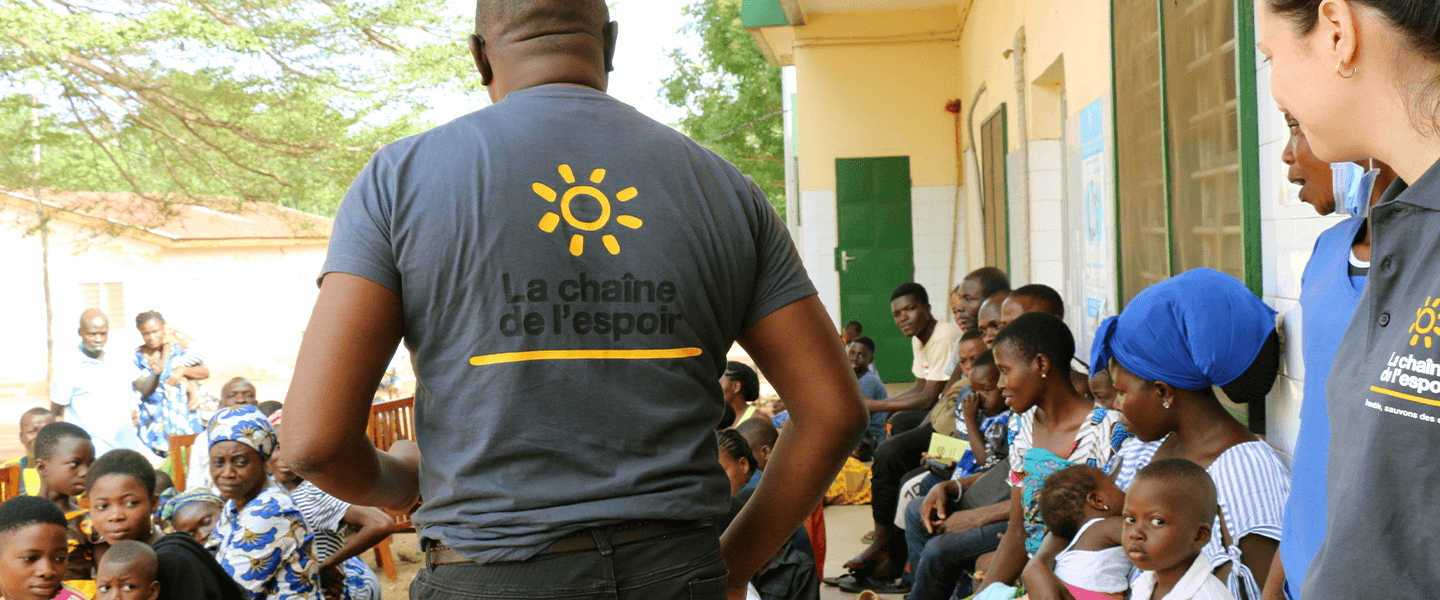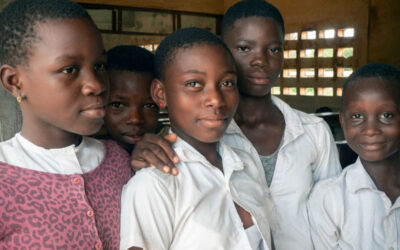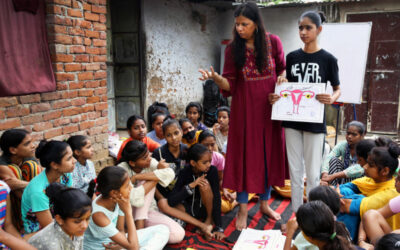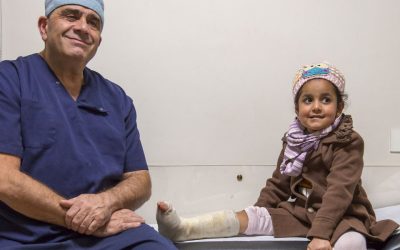Prevention and screening
Background
Prevention and screening: two key areas for lasting impact
Half of the
population
of the world do not have access to essential health services.
One child or
in 10
in the world are disabled.
1 in 4 children
born in a low-income country die before their fifth birthday.
Sources: WHO, Unicef
To have a lasting impact on the health of a community, treatment alone is not enough. That’s why, right from the start of La Chaîne de l’Espoir’s missions in Thailand in 1994, we set up prevention, screening and awareness campaigns.
By promoting access to regular medical check-ups and identifying pathologies as early as possible, we facilitate access to healthcare for as many people as possible, and enable the most vulnerable populations, especially children, to live in good health. This area of intervention is part of a global approach: to strengthen local healthcare systems, we deploy a methodology combining prevention, care, training, and the construction and equipping of hospital structures.
Our actions to prevent and detect pathologies in children enable us to reduce the need for surgery and other major medical interventions. Detecting pathologies at an early stage also prevents the development of disabilities or serious complications that can lead to death. Thisavoids unnecessary suffering for children and improves their quality of life, promoting their social integration.
By taking action for children’s health, we help to encourage learning and school attendance, thereby improving access to education. By including awareness-raising components in our programs, we also teach children and their families the importance of positive health behaviors and regular medical check-ups, enabling them to become active players in their own health.
Prevention and early detection can significantly reduce the costs of medical care and treatment. In this way, they help to reduce health inequalities by making health services more accessible and offering early care and intervention to the most vulnerable populations. It’s a commitment to life, to a world where every child has access to quality healthcare.
Our action to strengthen screening
Developing access to healthcare for children through school health services
A child’s good health is a prerequisite for a quality education.
Conversely, a health-promoting education provides children with the keys to maintaining and improving their own health, and that of those around them. In order to reduce health inequalities, we intervene directly in schools or childcare facilities. Screening for sensory disorders, medical follow-up, oral and dental consultations, meal provision, health education, prevention of domestic accidents: our actions aim to create an environment conducive to children’s learning and well-being.
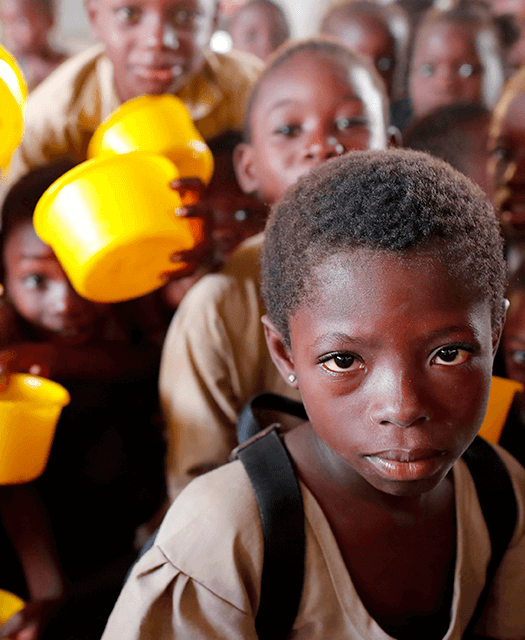
Togo: mobilizing for schoolchildren in Lomé
With financial support from the French Development Agency, we are rolling out the "My Health, My School, a Collective Challenge in Togo" project in Togo. Through early screening and support for learning disabilities in preschool and primary school students, as well as written, oral, and artistic expression clubs, this project aims to improve learning conditions and health education for children in Lomé's schools.
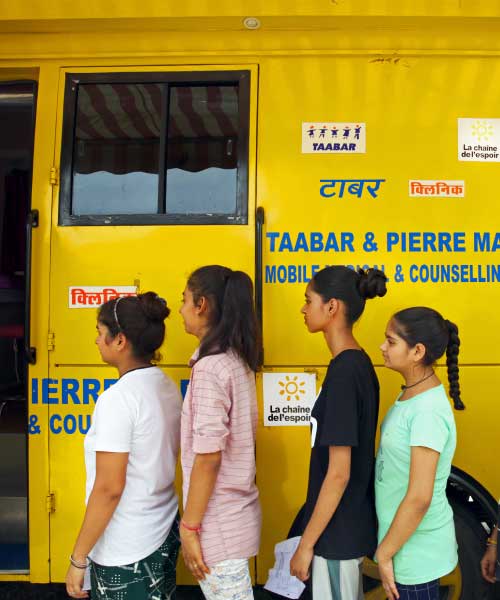
India: mobile clinics for vulnerable children
In Rajasthan, India, La Chaîne de l’Espoir supports two mobile clinics run by the NGO Tabaar, one of which is exclusively for girls. Each quarter, these clinics conduct more than 10,000 consultations as well as prevention and awareness-raising activities.
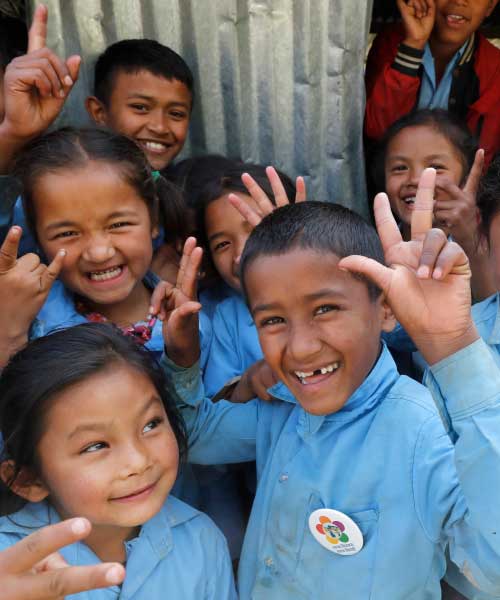
Nepal: health centers in schools
Active in Nepal since 2011, our association manages health centers in partnership with the NGO Child Protection Centers and Services (CPCS). Present in the districts of Kathmandu, Dolakha, Sindhuli, and Morang, it develops access to care for vulnerable children.
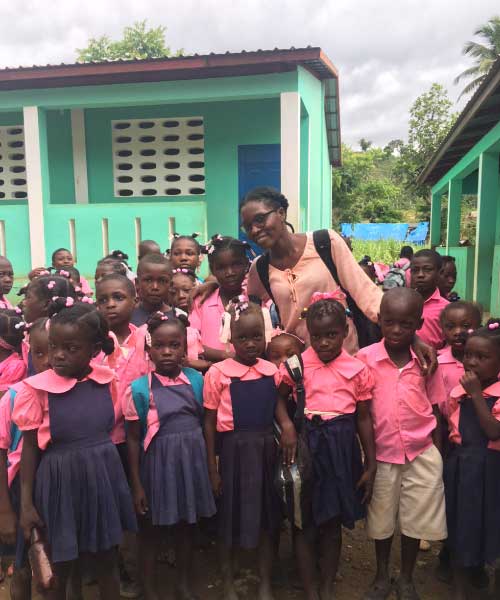
Haiti: health centers and screening for sensory disorders
In Haiti, since 2016, La Chaîne de l’Espoir has continued to support 2,500 children despite the country's major political and health challenges. These children from nine rural schools in the southwest of the country benefit from sensory screenings that can hinder their schooling and an annual medical checkup, as well as, where appropriate, treatment for any disorders detected. La Chaîne de l’Espoir funds two health centers staffed by two doctors and three nurses.
“Outside Kathmandu, health centers are rare and often lack doctors or medicines, offering poor quality care. Our health centers are therefore essential for monitoring children, diagnosing disorders and pathologies, and detecting cases requiring surgery.”
Clémentine Girod, volunteer nurse, who takes part in missions to health centers in Nepal
Prevent the development of disabilities through detection campaigns
In Lebanon and Jordan, La Chaîne de l’Espoir is developing projects to identify and care for children suffering from congenital anomalies. Early detection campaigns, carried out in various regions of these countries, enable us to reach out to families to identify pathologies as early as possible and refer them to healthcare professionals for rapid treatment. The earlier these conditions are identified, the less onerous the treatment. In the case of orthopedic anomalies, for example, the use of prostheses in the first few months of life can help avoid surgery or the development of disabling handicaps for the child.
Raising awareness of the dangers of corrosive products
In Mali and Côte d’Ivoire, many children accidentally ingest caustic soda, causing severe burns to the esophagus. Chaîne de l’Espoir, in partnership with the Terre des hommes association in Mali and the Côte d’Ivoire Red Cross, is developing a prevention and care project supported by the French Development Agency. The project includes public information campaigns and raising awareness among caustic soda users and retailers, as well as local authorities, of the dangers of corrosive products for children.

